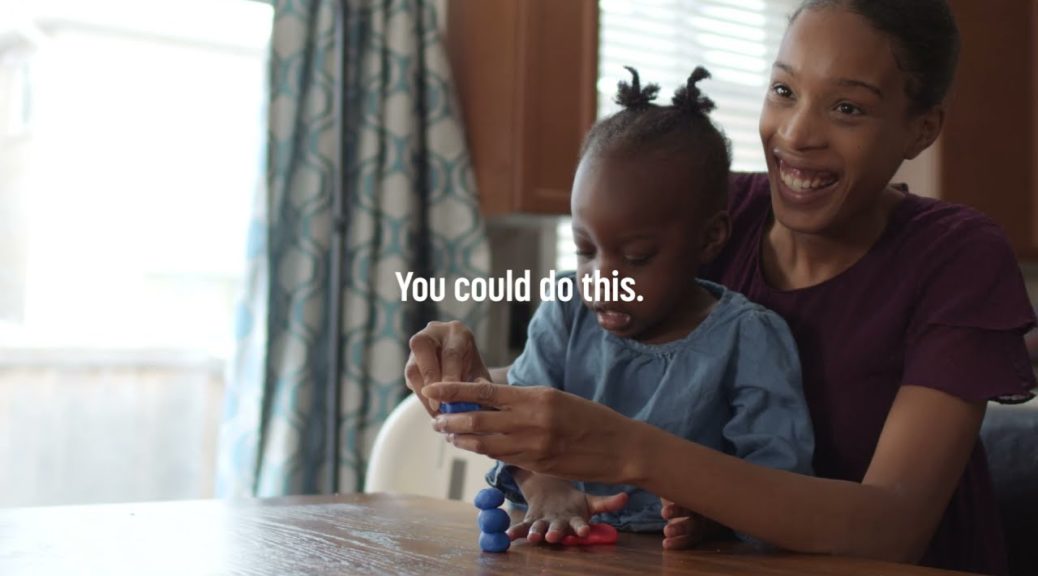Black Children Are Overrepresented in Foster Care. Here’s How We Can Address This Disparity

Nationwide, Black youth are overrepresented in foster care. In 2018, Black children represented 14% of the total child population but 23% of all kids in foster care. In comparison, white youth represent 50% of the nation’s child population and 44% of its foster care population. Additionally, Black children spend longer on average in foster care than white children.
When finding loving homes for youth when they have to enter foster care due to safety concerns, ensuring that their cultural needs are met is essential to their wellbeing. This can be accomplished by keeping youth in the same community when entering out-of-home care and recruiting foster parents and kinship caregivers who reflect their values and identity.
Click Here to Learn More About Becoming a Foster Parent
This is not to say that Black children shouldn’t be placed into the homes of caring, compassionate caregivers of other races. Rather, Black families tend to be more attuned to the struggles Black children face. Placing them with parents who share their racial background and culture helps to alleviate their trauma. Also, research shows that keeping children connected to their community of origin can also help build a sense of personal pride and can provide an environment that leads Black youth toward academic success.
Recruiting diverse homes has been a long-time goal of the Kansas Department for Children and Families through their Diligent Recruitment Plan, which is a systematic approach to preparing and retaining families who can meet the needs of youth in foster care. Currently, just 4% of KVC Kansas foster homes include Black adults. As such, we need to work ardently to recruit homes that will provide the best environment for these youth. Our goal is to honor the generations-long tradition within communities of color of caring for vulnerable children.
Foster families of all kinds are needed, and we are working to address a disparity between the percentage of Black kids in care and the percentage of Black foster families. Child welfare systems work to preserve a child’s cultural heritage and family connections when possible as this can increase placement stability, help heal trauma, and reduce children’s time in foster care. Currently in Kansas, 1,367 children in foster care are African American. The counties with the highest numbers of Black children in foster care care are Sedgwick (343 children), Shawnee (224 children), Wyandotte (2017 children) and Johnson (163 children).
In addition to this initiative, we are continuing to address racial disparities from the prevention angle by implementing family strengthening programs that safely prevent the need for foster care and working closely with our state partners to address racial disparities in foster care.
Experts from the National Conference of State Legislators recommend the following strategies to address racial inequities in child welfare systems:
- Understand and address the impact of individual biases in investigating, intervention and placement processes.
- Developing culturally responsive practices.
- Recruiting and retaining foster families of color.
- Engaging communities of color when developing new policies.
- Using data to identify and address disparate outcomes.
Watch this video from NCSL.org for a deeper dive into disparities in the child welfare system:
Become a Foster Parent
The need is high for safe, nurturing family environments for children who have been removed from their homes as a result of abuse, neglect or other family challenges. Currently, there are nearly 7,000 youth in foster care in Kansas. We are constantly recruiting and training foster parents from all walks of life in order to make sure each child who has to enter foster care has a loving home to stay in while their parents work towards a safe reunification. Foster parents come from all types of backgrounds. You can be single or married, work full-time or part-time, and there are no restrictions to fostering if you’re in a same-sex marriage/relationship or identify as LGBTQIA+.
Foster parenting provides a child who has experienced abuse or neglect with a safe, loving environment. It also enriches your life with joy and meaning as you teach life skills and give support.
If you’d like to learn more about fostering or get started, KVC Kansas is here to guide you every step of the way. We will provide you with:
- Free training classes offered online or in person
- Free ongoing training and support 24/7/365
- A community of people like you who care about helping children and families
- Monthly reimbursement to meet the child’s needs and assistance with back-to-school supplies and holiday gifts
- And much more!